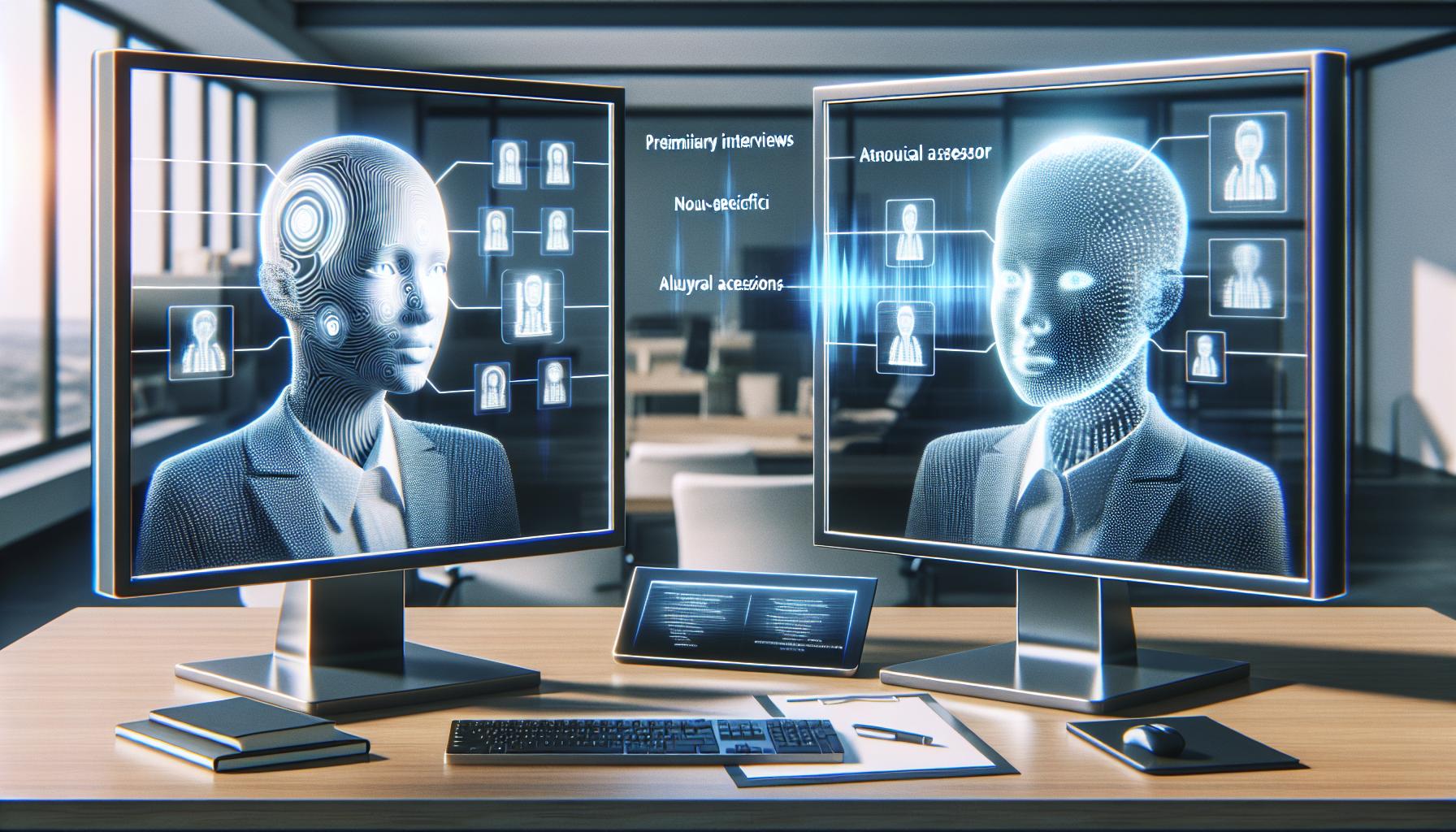Chatbots and Virtual Assessors: AI's Role in Conducting Preliminary Interviews

Introduction
The landscape of job and project interviews is undergoing a significant transformation. Today, Artificial Intelligence is taking center stage in conducting preliminary interviews, bringing innovation and efficiency to the process. AI-driven chatbots and virtual assessors are not only capable of asking relevant questions but can also assess candidate responses, analyze facial expressions, and gauge tone of voice to determine suitability.
The Evolution of AI in Preliminary Interviews
Preliminary interviews are essential for narrowing down a large pool of candidates to a manageable number. Traditionally, this stage involves considerable time and effort from human resources (HR) departments. However, with the advent of AI technologies, companies are now able to streamline this process.
AI-driven chatbots can be programmed to ask a series of standard questions that help screen candidates. These questions are tailored to align with the job description and company culture. By analyzing the responses, AI can determine if a candidate meets the basic qualifications, thus shortlisting suitable candidates for the next stage.
Understanding Virtual Assessors
Virtual assessors take AI's role in preliminary interviews one step further. Beyond just asking questions, these systems use advanced algorithms to evaluate the content and context of a candidate's responses. Moreover, virtual assessors can analyze facial expressions and tone of voice, offering a more holistic view of the candidate's suitability.
Key Benefits of AI in Preliminary Interviews
Efficiency
One of the most significant advantages of using AI in preliminary interviews is efficiency. Automated systems can conduct multiple interviews simultaneously, drastically reducing the time required for this stage. This efficiency allows HR teams to focus on more strategic tasks.
Scalability
AI-driven solutions are highly scalable. Whether a company is hiring for five positions or fifty, chatbots and virtual assessors can handle the volume without compromising on quality. This scalability is particularly beneficial for large organizations or during periods of rapid expansion.
Consistency
AI ensures a consistent interview process for all candidates. Human interviewers may inadvertently introduce bias or vary their questions across interviews. In contrast, AI follows a standardized approach, ensuring every candidate is assessed using the same criteria.
Analyzing Facial Expressions and Tone of Voice
Advanced virtual assessors utilize facial recognition technology to analyze expressions during interviews. Micro-expressions, which are often subconscious and fleeting, can provide valuable insights into a candidate's true feelings and reactions. Similarly, analyzing tone of voice can help determine confidence, honesty, and other attributes that are crucial for certain roles.
Real-world Applications and Success Stories
Several companies have successfully implemented AI-driven chatbots and virtual assessors in their hiring processes. For example, Unilever uses an AI recruiting assistant named HireVue to conduct initial screenings. This AI tool asks candidates to record video responses to interview questions. The system then analyzes these responses for content, facial expressions, and tone of voice, providing comprehensive feedback to the HR team.
Another notable example is Hilton Worldwide, which has incorporated AI to enhance its recruitment process. Their chatbot, known as Connie, engages with candidates, answers queries, and conducts preliminary screenings. Connie's ability to handle multiple conversations simultaneously has significantly reduced the time and resources spent on initial interviews.
Challenges and Ethical Considerations
While AI-driven preliminary interviews offer many benefits, there are also challenges and ethical considerations to address. One concern is the potential for inherent biases in AI algorithms. If the data used to train these algorithms contains biases, the AI may inadvertently perpetuate them. It is crucial for companies to regularly audit and update their AI systems to ensure fairness and inclusivity.
Another challenge is ensuring that candidates feel comfortable with AI-driven interviews. While some may appreciate the efficiency and convenience, others may prefer the human touch. Providing candidates with the option to choose between AI and human interviewers can help address this issue.
Conclusion
AI-driven chatbots and virtual assessors are revolutionizing the preliminary interview stage, offering remarkable benefits in terms of efficiency, scalability, and consistency. Companies like Unilever and Hilton Worldwide have demonstrated the value of these technologies in enhancing their recruitment processes. However, it is essential to address challenges and ethical considerations to ensure that AI-driven interviews are fair and inclusive. As technology continues to evolve, AI is set to play an increasingly prominent role in shaping the future of hiring.




